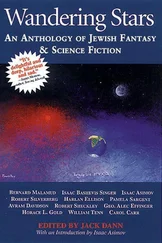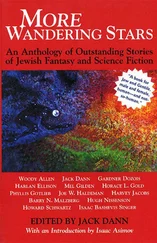Альфред Бестер - Star of Stars [Anthology]
Здесь есть возможность читать онлайн «Альфред Бестер - Star of Stars [Anthology]» весь текст электронной книги совершенно бесплатно (целиком полную версию без сокращений). В некоторых случаях можно слушать аудио, скачать через торрент в формате fb2 и присутствует краткое содержание. Год выпуска: 1960, Издательство: Ballantine Books, Жанр: Фантастика и фэнтези, на английском языке. Описание произведения, (предисловие) а так же отзывы посетителей доступны на портале библиотеки ЛибКат.
- Название:Star of Stars [Anthology]
- Автор:
- Издательство:Ballantine Books
- Жанр:
- Год:1960
- ISBN:нет данных
- Рейтинг книги:5 / 5. Голосов: 1
-
Избранное:Добавить в избранное
- Отзывы:
-
Ваша оценка:
- 100
- 1
- 2
- 3
- 4
- 5
Star of Stars [Anthology]: краткое содержание, описание и аннотация
Предлагаем к чтению аннотацию, описание, краткое содержание или предисловие (зависит от того, что написал сам автор книги «Star of Stars [Anthology]»). Если вы не нашли необходимую информацию о книге — напишите в комментариях, мы постараемся отыскать её.
Star of Stars [Anthology] — читать онлайн бесплатно полную книгу (весь текст) целиком
Ниже представлен текст книги, разбитый по страницам. Система сохранения места последней прочитанной страницы, позволяет с удобством читать онлайн бесплатно книгу «Star of Stars [Anthology]», без необходимости каждый раз заново искать на чём Вы остановились. Поставьте закладку, и сможете в любой момент перейти на страницу, на которой закончили чтение.
Интервал:
Закладка:
I asked Corporal Cuckoo, "How did you find out that your mixture didn't work?"
"Well, I tried it on Rose. She kept on at me till I did. Every now and again we had kind of a lovers' quarrel, and I tried the Digestive on her afterward. But she took as long to heal as any ordinary person would have taken. The interesting thing was that I not only couldn't be killed by a wound, I couldn't get any older! I couldn't catch any diseases! I couldn't die! And you can figure this for yourself : if some stuff that cured any sort of wound was worth a fortune, what would it be worth to me if I had something that would make people stay young and healthy forever? Eh?" He paused.
I said, "Interesting speculation. You might have given some of the stuff, for example, to Shakespeare. He got better and better as he went on. I wonder what he would have arrived at by now? I don't know, though. If Shakespeare had swallowed an elixir of life and perpetual youth when he was very young, he would have remained as he was, young and undeveloped. Maybe he might still be holding horses outside theatres—or whistling for taxis, a stage-struck country boy of undeveloped genius.
"lf, on the other hand, he had taken the stuff when he wrote, say, The Tempest— there he'd be still, burnt up, worn out, world-weary, tired to death and unable to die. On the other hand, of course, some debauched rake of the Elizabethan period could go on being a debauched rake at high pressure, for centuries and centuries. But, oh my God, how bored he would get after a hundred years or so, and how he'd long for death! That would be dangerous stuff, that stuff of yours, Corporal Cuckoo!"
"Shakespeare?" he said. "Shakespeare? William Shakespeare. I met him. I met a buddy of his when I was fighting in the Netherlands, and he introduced us when we got back to London. William Shakespeare—puffy-faced man, bald on top; used to wave his hands about when he talked. He took an interest in me. We talked a whole lot together."
"What did he say?" I asked.
Corporal Cuckoo replied, "Oh, hell, how can I remember every goddam word? He just asked questions, the same as you do. We just talked."
"And how did he strike you?" I asked.
Corporal Cuckoo considered, and then said, slowly, "The kind of man who counts his change and leaves a nickel tip. ...One of these days I'm going to read his books, but I've never had much time for reading."
I said, "So, I take it that your only interest in Pare's Digestive has been a financial interest. You merely wanted to make money out of it. Is that so?"
"Why, sure," said Corporal Cuckoo. "I've had my shot of the stuff. I'm all right."
"Corporal Cuckoo, has it occurred to you that what you are after is next door to impossible?"
"How's that?"
"Well," I said, "your Pare's Digestive is made of egg yolk, oil of roses, turpentine and honey. Isn't that so?"
"Well, yes. So what? What's impossible about that?"
I said, "You know how a chicken's diet alters the taste of an egg, don't you?"
"Well?"
"What a chicken eats changes not only the taste, but the color of an egg. Any chicken farmer can tell you that. Isn't that so?"
"Well?"
"Well, what a chicken eats goes into the egg, doesn't it—just as the fodder that you feed a cow comes out in the milk? Have you stopped to consider how many different sorts of chickens there have been in the world since the Battle of Turin in 1537, and the varieties of chicken feed they might have pecked up in order to lay their eggs? Have you thought that the egg yolk is only one of four ingredients mixed in Ambroise Pare's Digestive? Is it possible that it has not occurred to you that this one ingredient involves permutations and combinations of several millions of other ingredients?"
Corporal Cuckoo was silent. I went on, "Then take roses. If no two eggs are exactly alike, what about roses? You come from wine-growing country, you say: then you must know that the mere thickness of a wall can separate two entirely different kinds of wine—that a noble vintage may be crushed out of grapes grown less than two feet away from a vine that is good for nothing. The same applies to tobacco. Have you stopped to think of your roses? Roses are pollinated by bees, bees go from flower to flower, making them fertile. Your oil of roses, therefore, embodies an infinity of possible ingredients. Does it not?"
Corporal Cuckoo was still silent. I continued, with a kind of malicious enthusiasm. "You must reflect on these things, Corporal. Take turpentine. It comes out of trees. Even in the sixteenth century there were many known varieties of turpentine—Chian Terebinthine, and what not. But above all, my dear fellow, consider honey! There are more kinds of honey in the world than have ever been categorized. Every honeycomb yields a slightly different honey. You must know that bees living in heather gather and store one kind of honey, while bees living in an apple orchard give us something quite different. It is all honey, of course, but its flavor and quality are variable beyond calculation. Honey varies from hive to hive, Corporal Cuckoo. I say nothing of wild bees' honey."
"Well?" he said, glumly.
"Well. All this is relatively simple, Corporal, in relation to what comes next. I don't know how many beehives there are in the world. Assume that in every hive there are—let us be moderate—one thousand bees. (There are more than that, of course, but I am trying to simplify.) You must realize that every one of these bees brings home a slightly different drop of honey. Every one of these bees may, in its travels, take honey from fifty different flowers. The honey accumulated by all the bees in the hive is mixed together. Any single cell in any honeycomb out of any hive contains scores of subtly different elements! I say nothing of the time element; honey six months old is very different from honey out of the same hive, left for ten years. From day to day, honey changes. Now taking all possible combinations of eggs, roses, turpentine and honey—where are you? Answer me that, Corporal Cuckoo."
Corporal Cuckoo struggled with this for a few seconds, and then said, "I don't get it. You think I'm nuts, don't you?"
"I never said so," I said uneasily.
"No, you never said so. Well, listen. Don't give me all that double talk. I'm doing you a favor. Look—“
He took out and opened his jackknife, and scrutinized his left hand, looking for an unscarred area of skin. "No!" I shouted, and gripped his knife-hand. I might have been trying to hold back the piston rod of a great locomotive. My grip and my weight were nothing to Corporal Cuckoo.
"Look," he said, calmly, and cut through the soft flesh between the thumb and forefinger of his left hand until the knifeblade stopped on the bone, and the thumb fell back until it touched the forearm. "See that?"
I saw it through a mist. The great ship seemed, suddenly, to roll and plunge. "Are you crazy?" I said, as soon as I could.
"No," said Corporal Cuckoo. "I'm showing you I'm not, see?" He held his mutilated hand close to my face. "Take it away," I said.
"Sure," said Corporal Cuckoo. "Watch this." He pushed the almost-severed thumb back into place, and held it down with his right hand. "It's okay," he said, "there's no need to look sick. I'm showing you, see? Don't go—sit down. I'm not kidding. I can give you a hell of a story, a fact-story. I can show you Pares little notebook and everything. You saw what I showed you when I pulled up my shirt? You saw what I've got right here, on the left side?"
I said, "Yes"
"Well, that's where I got hit by a nine-pound cannon-ball when I was on the Mary Ambree, fighting against the Spanish Armada—it smashed my chest so that the ribs went through my heart—and I was walking about in two weeks. And this other one on the right, under the ribs—tomorrow I'll show you what it looks like from the back—I got that one at the Battle of Fontenoy; and there's a hell of a good story there. A French cannonball came down and hit a broken sword that a dead officer had dropped, and it sent that sword flying right through me, lungs and liver and all. So help me, it came out through my right shoulderblade. The other one lower down was a bit of bombshell at the Battle of Waterloo—I was opened up like a pig—it wasn't worth the surgeon's while to do anything about it. But I was on my feet in six days, while men with broken legs were dying like flies. I can prove it, I tell you! And listen—I marched to Quebec with Benedict Arnold. Sit still and listen—my right leg was smashed to pulp all the way down from the hip to the ankle at Balaklava. It knitted together before the surgeon had a chance to get around to me; he couldn't believe his eyes—he thought he was dreaming. I can tell you a hell of a story! But it's worth dough, see? Now, this is my proposition: I'll tell it, you write it, and we'll split fifty-fifty, and I'll start my farm. What d'you say?"
Читать дальшеИнтервал:
Закладка:
Похожие книги на «Star of Stars [Anthology]»
Представляем Вашему вниманию похожие книги на «Star of Stars [Anthology]» списком для выбора. Мы отобрали схожую по названию и смыслу литературу в надежде предоставить читателям больше вариантов отыскать новые, интересные, ещё непрочитанные произведения.
Обсуждение, отзывы о книге «Star of Stars [Anthology]» и просто собственные мнения читателей. Оставьте ваши комментарии, напишите, что Вы думаете о произведении, его смысле или главных героях. Укажите что конкретно понравилось, а что нет, и почему Вы так считаете.
![Альфред Бестер Star of Stars [Anthology] обложка книги](/books/398777/alfred-bester-star-of-stars-anthology-cover.webp)


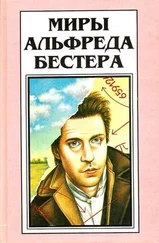
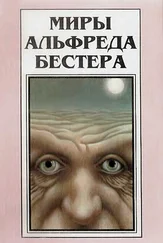


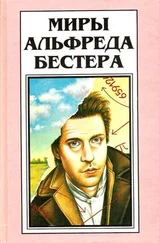
![Альфред Бестер - Миры Альфреда Бестера. Том 3 [Авторский сборник]](/books/405485/alfred-bester-miry-alfreda-bestera-tom-3-avtor-thumb.webp)
